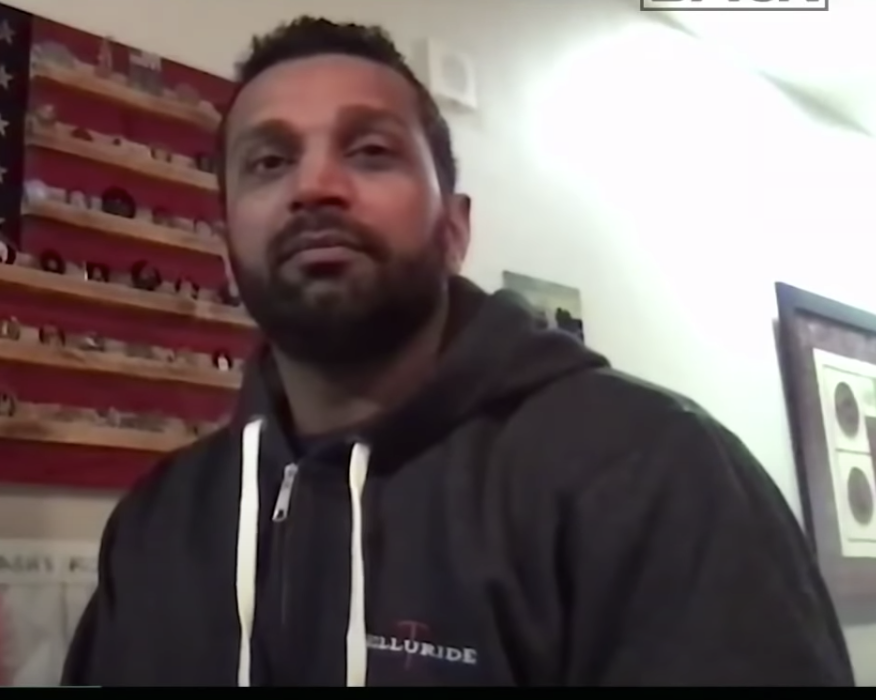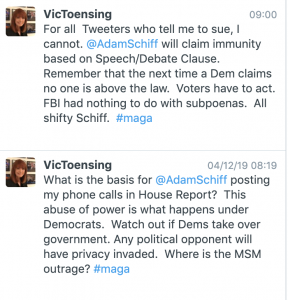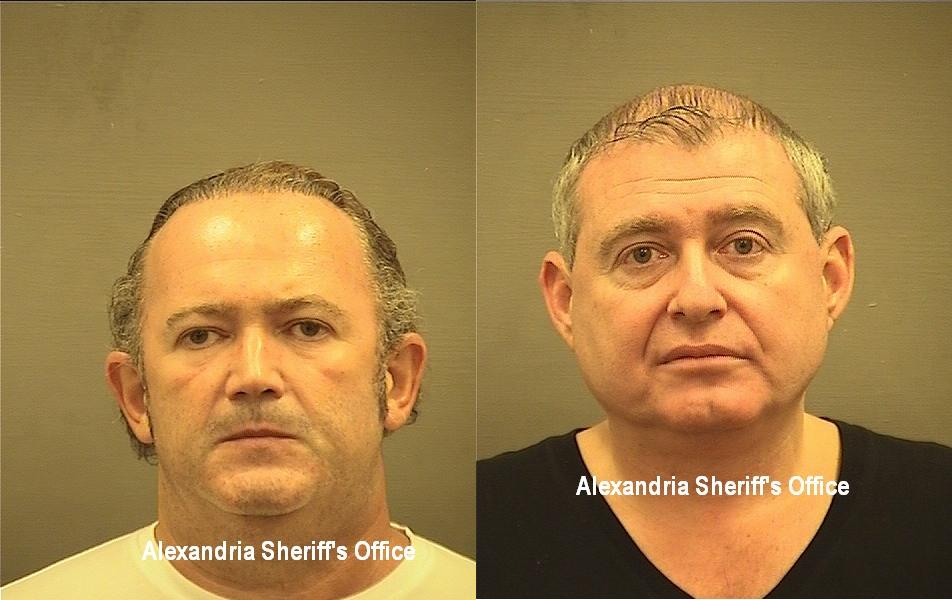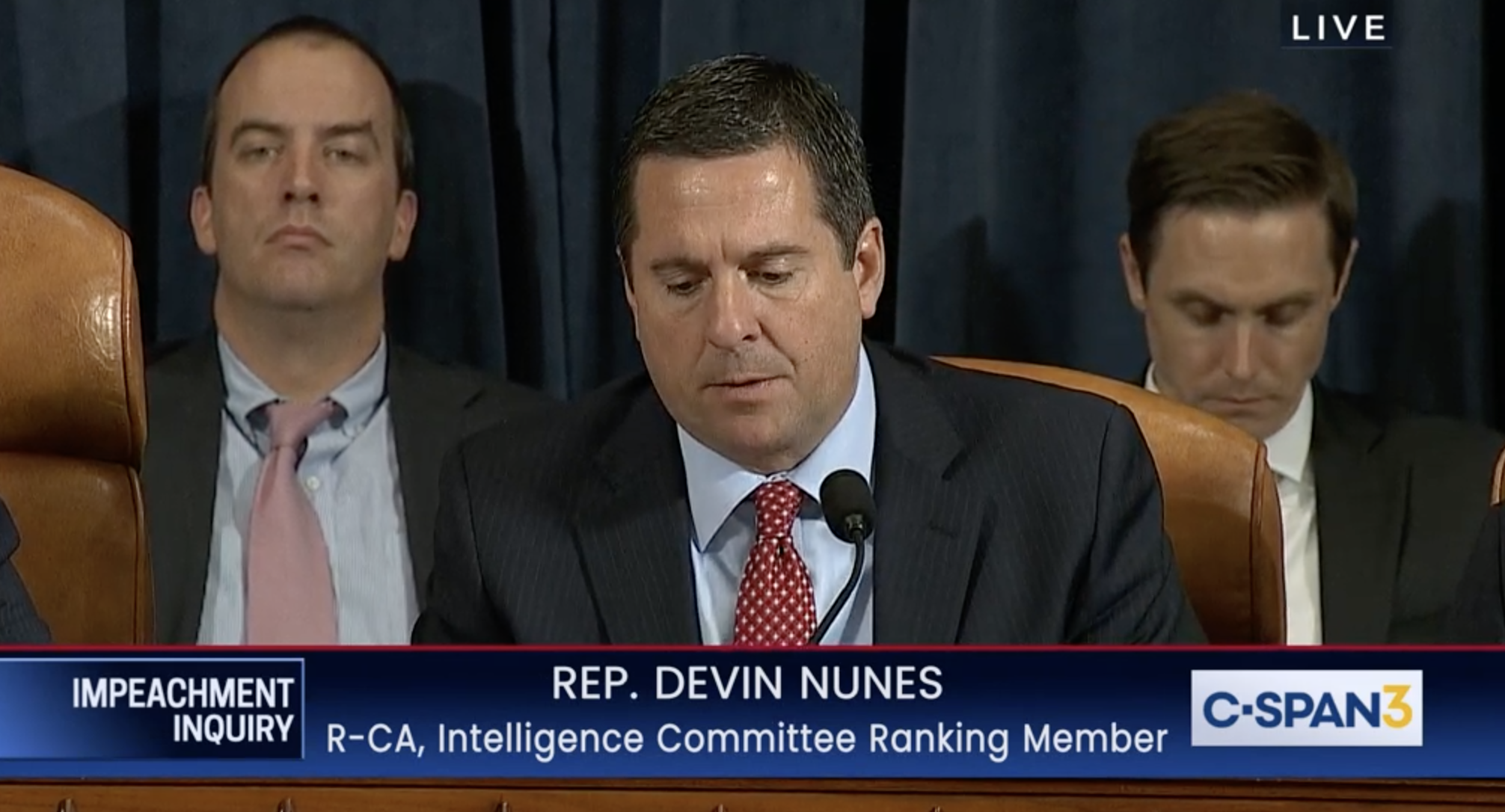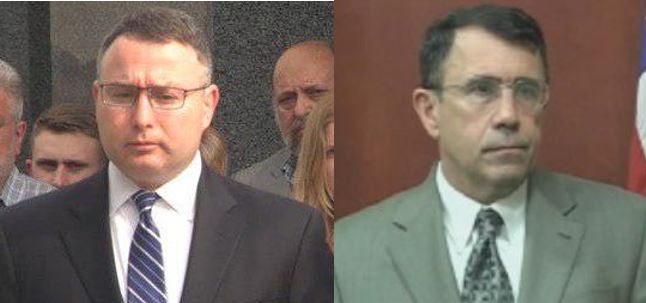Think of the HPSCI Report as a Time Machine to Launder Donald Trump’s Russia Russia Russia Claims
On July 11, 2017, I noted that we had proof that Trump’s claims he had been wiretapped were false. That’s because, if the Intelligence Community had found an exchange like the one Don Jr released that day — in which someone working for Russian oligarch Aras Agalarov offered Don Jr, “very high level and sensitive information but is part of Russia and its government’s support for Mr. Trump” and he responded, “If it’s what you say I love it especially later in the summer,” then the confidence level for the Intelligence Community Assessment that Russia had affirmatively tried to help Donald Trump get elected would have been high, even for the NSA (which said it only had moderate confidence).
And yet we’re still arguing over whether that judgement was fair eight years later.
The HPSCI report released the other day — which is dated September 18, 2020, but which right wing HPSCI Chair Rick Crawford misleadingly released alongside a statement pretending it was done in January 2017, and which the architect of the case for the Iraq War, Fred Fleitz, says was done in 2018 — seems to have been a response to a more rigorous SSCI Report released weeks earlier that confirmed Putin did want Trump to win. (Indeed, Fleitz offers a garbage explanation to claim this HPSCI Report is more credible than the SSCI one.)
The HPSCI report manages to challenge the SSCI conclusion by revisiting a different question: Not, did Russia take actions to help Trump win the election that created a grave counterintelligence threat (the SSCI report included, but went far beyond, the evidence released in the Mueller Report) but, did the IC claim that Putin did want Trump to win, made in a rushed report published in the first days of 2017, have enough evidence behind it at the time?
The report accuses John Brennan of having made up his mind to that question, yes, Putin aspired to help Trump, and thereby influenced the result. Fair enough (though as I read it I wondered whether Brennan knew of the advance notice of the email leak that George Papadopoulos got, and so had a source of confidence not reflected in the report; and the nature of the claim in the HPSCI report differs from the nature of the claim in a report John Ratcliffe released last week). But the HPSCI report does the exact same thing, delivering up the result that Donald Trump wanted, and it did so, in part, by intentionally remaining dumb to many, but not all, of the things that had been learned since.
Just as one example, the report asserts,
[T]he available intelligence showed: No Putin orders directing or suggesting operations intended to elect Trump (by contrast, Intelligence on Russian operations on German elections specifically mentioned Putin’s goal of defeating Chancellor Merkel).
This refers to this ICA judgment predicting that Germany would be the next country in whose elections Russia would interfere. Only, that judgement turned out to be wrong; Russia conducted the same kind of hack-and-leak campaign targeting Emmanuel Macron in May 2017 (with the help of pro-Trump influencers), so while that might be a good argument in January 2017, it fails after May 2017, to say nothing of September 2020.
More importantly, it only references the intelligence available through December 29, 2016, so wouldn’t include the damning email to Don Jr disclosed in July 2017. Because the ICA didn’t include ongoing FBI investigations, it wouldn’t include Papadopoulos’ brags about Russian interference that the FBI knew about, but didn’t, couldn’t, include in the report. It wouldn’t include the intercepts between Mike Flynn and Sergei Kislyak discovered in that very period as the IC sought to explain why Putin decided not to retaliate against US sanctions.
The HPSCI report concluded there was not enough intelligence to back a high confidence conclusion that Putin wanted to help Trump win by focusing only on the time before FBI started looking in earnest.
In any case, as I’ll show, in several places, the report breaks the conceit that they’re evaluating only the information available to the IC on December 29, 2016.
The HPSCI Report, then, is not so much a useful piece of analysis, but a time machine, an attempt, weeks before the 2020 election, to set the clock back for candidate Donald Trump to the time before it became clear he really did benefit from help from Russia.
And it doesn’t even do that very well.
The report structure
As laid out below, the report doesn’t hide that its sole goal is to erase the judgment that Putin wanted to elect Trump. Its first finding is that everything else in the ICA is sound, followed by seven poorly-organized findings ostensibly explaining why the assessment that Putin aspired to help Trump was unsound.
- Finding 1: The bulk of the ICA judgements were sound.
- Finding 2: Significant tradecraft failures cast doubt on the ICA judgments of Putin’s intentions, claiming that only on the judgment that Putin aspired to help Trump, the ICA tradecraft failed.
- Finding 3: The ICA failed to acknowledge that key judgements were based on raw intelligence that did not meet tradecraft standards: This claims that of 15 sources behind the judgment, 12 were unremarkable, but three “contained flawed information and these became foundational” to the claim Putin aspired to help Trump win.
- One was a fragment, claiming that Putin “counted on” a Trump win, that John Brennan overruled professionals to include.
- A second was a substandard (Ukrainian) report from an unknown subsource about a February 2016 Russian plan recommending engagement with Trump.
- A third was a another substandard source from an unknown source. It claimed that Russia preferred Republicans over Democrats because they didn’t care about human rights.
- Finding 4: The ICA excluded significant intelligence that contradicted its judgment. This section discusses Russia explaining why there were downsides to both candidates.
- Finding 5: The ICA disregarded Russian behavior that undermined its judgment that Putin aspired to help Trump win. This section, which notes that Moscow was receiving reports on US polling but doesn’t mention (!!!) that some came from Trump’s campaign manager, argues that since the election got close in its final weeks, you would have expected Putin to dump all the other derogatory intelligence he had on Hillary. That argument provides an opportunity to parrot the SVR documents discussed here. It also looked at what it claimed were Russian leaks (really, just one) that it said made Trump look bad. Finally, it ludicrously suggested that the disparate hacking of Hillary is just attributed to her being an easier target.
- Finding 6: The ICA misrepresented documents on Putin’s intention. This pertains significantly to advice Putin got (it may also rely on the SVR documents). A 10-page attack on the dossier is put in here for contrived reasons, which I’ll return to in another post.
- Finding 7: The ICA failed to consider alternate explanations. This section significantly revisits the SVR documents.
- Finding 8: The ICA was unnecessarily rushed.
Some of this is quite reasonable. For example, Finding 4 notes that Russia was going to be unhappy with either candidate; I think Trump opponents often forget that Putin didn’t want a strong Trump, he wanted a Trump whose narcissism would create more problems than Hillary.
In Finding 8, sure this report was rushed. It had to be.
Some of the criticism of Brennan — if accurate, but as noted the complaint here is different from the complaint in more recent reports — seems fair.
The flawed reports (Finding 4)
In several other areas, the analysis only survives by relying on that time machine effect.
The report claims that of 15 pieces of intelligence to back the Putin finding, three were not just substandard, but were pushed through by Brennan.
The first I address here. Brennan pushed to include a report that Putin approved the DNC leak because he was “counting on” a Trump victory. The CIA, years later, stands by the quality of the source and the fact that the interpretation in the ICA, “was most consistent with the raw intelligence.”
The second of these three reports is far more interesting. It describes a report from Kyiv (the Republicans spell it Kiev) laying out a plan, starting in February 2016, to place someone pro-Russian on Trump’s campaign team. The analysis of this lead focuses on questionable sourcing and potential Ukrainian bias.
But the time machine effect of this report frees Republicans from accounting for the fact that Trump, starting in February 2016, in fact did place a pro-Kremlin official on his “election team,” Paul Manafort, and Manafort sought to monetize his role there by getting pro-Russian Ukrainians and a Russian oligarch to pay him.
And Konstantin Kilimnik, in Ukraine, seemed to know of that plan before Manafort was installed. This report may have looked problematic for inclusion in December 2016 (though by that point Manafort’s cover-up of his Russian ties was public). But it looked prescient by 2020.
The third report is similar. HPSCI’s response begins a long focus of the report attempting to debunk the underlying intelligence — a claim that Russia perceived Republicans to be less supportive of human rights — with a bunch of whataboutism. How dare you call the party of torture less supportive of human rights, the right wingers wail. Did you know that Reagan said, “tear down this wall”? All the while ignoring that Trump ran on an affirmatively pro-torture platform.
“They’re both poison” (Finding 5, 7)
In other words, a central pillar of the report is to complain that intelligence analysts didn’t consider alternative explanations for the intelligence they were looking at.
This was about the stage of reading this report where I could get not get the scene from Princess Bride where Vizzini attempts to outsmart the Dread Pirate Roberts out of my head.
That’s true because some of the arguments — and they go on for pages and pages — sound just as stupid as Vizzini does. Republicans tie themselves in knots trying to come up with alternative explanations. Republicans refuse to consider that the SVR hacks, which I wrote about here, were meant for intelligence collection but the foot-stomping GRU ones were not. They treat all the SVR reports — including the ones that, FBI had decided years before 2020 were objectively false or the one that Ratcliffe released days before this report warning it “may reflect exaggeration or fabrication” — as true and damning. They obsess about the derogatory claims about Hillary’s health and mental fitness without even considering the report Hillary released in real time after her pneumonia scare. They actually believe a claim that European leaders doubted Hillary could lead. These reports obviously play on right wing biases, and sure enough HPSCI’s Republicans cling to those Russian spy claims in the report, just as they have since Tulsi emphasized them. In a report that wails mightily (and correctly in at least one case, cited the parallel CIA report) about leaving out contrary information, HPSCI simply leaves out the Jim Comey allegation in one of the SVR reports, which if true, would explain why Putin wouldn’t have to (and didn’t) dump damning intel close to the election: Because Putin believed that “Comey is leaning more to the [R]epublicans, and most likely he will be dragging this investigation until the presidential elections,” something that turned out to be true. In other words, they cherry pick which Russian spy products they choose to parrot, one of the sins they accuse the ICA team of, but they do so with years of hindsight that made clear how foolish that was.
This report has an entire section on how Putin would have tracked polling and so knew he could get Trump over the line if he dumped opposition late in the campaign (which, of course, he did), without blushing about one source for that polling: Manafort’s regular provision of it via Kilimnik, something that became public between the ICA release in 2017 and this HPSCI report in September 2020.
Their claims get more ridiculous from there. Even in the face of the non-stop flood of Hillary emails released in 2016, right wingers cling to the single report from Colin Powell calling Trump “a national disgrace” as proof Putin doesn’t love Trump.
I mean, it’s pretty funny to me. But then ultimately it gets back to what Wesley, the Dread Pirate Roberts, said when Buttercup concluded that Wesley had put the poison in his own cup. He didn’t. He put poison in both glasses.
All the ICA did — and it’s worth reading how the “aspired to” section includes a lot of explanation as to why Putin would prefer Trump to which right wingers didn’t and don’t object, such as Trump’s willingness to partner with Russia on terrorism or make deals — all the ICA did was say that Putin wanted Trump to win. And right wingers have gone to all lengths, up to and including parroting Russian spies in the White House, to degrade the strength of that claim as it was made from high to moderate confidence years after it became clear the judgment was correct.
Ultimately the effort was intended and bound to drive more polarization. Which point the right wingers make but — oh my goodness look how they do it?!?! They point to the IRA’s activities after the election that claimed to oppose Trump’s election.
But they source that to the Robert Mueller IRA indictment, dated February 16, 2018, over a year after the ICA was completed.
By February 2018, there was abundant public evidence that Putin preferred Trump, including that letter to Don Jr as well as the guilty pleas of George Papadopoulos and Mike Flynn. By 2020, the date of this report, court filings were public describing Manafort’s lies that, Amy Berman Jackson judged, he told to cover up what happened at an August 2, 2016 meeting with alleged Russian spy where they discussed how Trump planned to win, how Manafort would get paid by pro-Russian Ukrainians and debt relief from Oleg Deripaska, and a plan to carve up Ukraine. But only here, only amid their desperate attempt to find proof that Vladimir Putin does too hate Donald Trump, do they confess they’ve read any of the charging documents from Mueller.
That is, the time machine was fake, just an attempt to make all the evidence laid out in the SSCI report go away.
As I’ll show, what HPSCI did with the dossier was even worse — so much worse I had to break it out as its own post. There, they don’t even try to maintain the illusion they were dumb to everything they learned since the ICA.
But as to their main report, claiming to assess the treatment of the intelligence in 2017 — a feigned ignorance that is central to their rebuttal of one of three “substandard” intelligence reports — they can’t even maintain that ploy as they attempt to whatabout proof that Putin wanted to help Trump win.
Links
A Dossier Steal: HPSCI Expertly Discloses Their Own Shoddy Cover-Up
Think of the HPSCI Report as a Time Machine to Launder Donald Trump’s Russia Russia Russia Claims
Tulsi Gabbard and John Ratcliffe Reveal Putin “Was Counting on” a Trump Win
Tulsi Gabbard Teams Up with Russian Spies to Wiretap and Unmask Hillary Clinton
The Secrets about Russia’s Influence Operation that Tulsi Gabbard Is Still Keeping from Us
Tulsi Gabbard Accuses Kash Patel of Covering Up for the Obama Deep State



